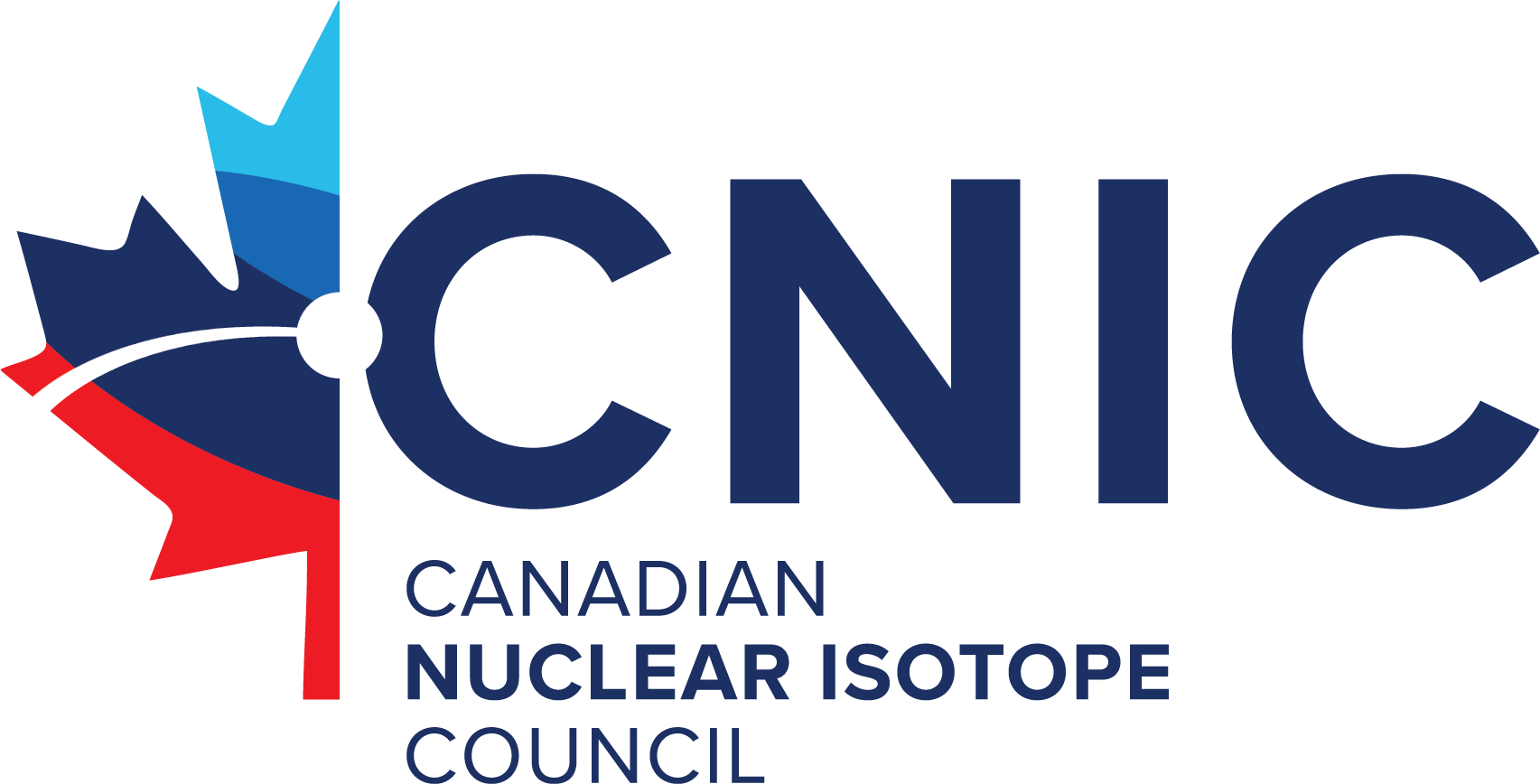Canada has been at the forefront of isotope research, development, and production of nuclear medicine technologies for over seven decades. With leading nuclear expertise and achievements, Canada is uniquely situated to inspire isotope innovation, revolutionizing healthcare and leading the global fight against cancer.
Globally, Canada is an essential part of the international supply chain for several medical isotopes. Canada is the world’s largest producer of cobalt-60, supplying over half the demand from the Bruce Power and Ontario Power Generation (OPG) CANDU reactors. Through advance applications like the Gamma Knife, Co-60 has been used to treat over 35 million brain cancer and brain tumour patients and is also used to sterilize 40% of the world’s single-use medical devices. Canada is also a top global producer of iodine-125 for brachytherapy. Over 60% of the world’s market of I-125 is produced at the McMaster Nuclear Reactor, enough to treat 70,000 cancer patients annually.
Until its retirement in 2018, Canada’s Chalk River reactor produced 40% of the world’s molybdenum-99, the nuclear precursor for technetium-99m. Used in SPECT diagnostic imaging, Tc-99m is the most used isotope globally. Each year, 40 million scans are conducted globally, including 1.1 million in Canada.
Today, efforts to continue producing this critical isotope domestically will contribute to the accessibility of life-preserving scans for Canadian patients. In 2023, OPG, Laurentis Energy Partners, and BWXT Medical outfitted the Darlington generating station to begin producing Mo-99 in Canada again, marking the first time that Mo-99 has been produced in a power reactor.
In 2022, Bruce Power started commercial-level production of lutetium-177. Lu-177 is in high demand for dozens of clinical trials around the world and is used to treat neuroendocrine tumours, prostate cancer, and other cancers.
Canada’s world-class infrastructure and skilled workforce is leading to the creation of new joint ventures in isotope production. Actineer, a partnership between Canadian Nuclear Laboratories and German ITM Isotope Technologies, will advance actinium-225 production. With such promising clinical trial results, Ac-225 is expected to be used in hundreds of cutting-edge radiopharmaceuticals to treat various cancers. Actineer will construct a new production facility to produce this rare isotope, right here in Canada.
As the voice of the industry, the Canadian Nuclear Isotope Council (CNIC) aims to maximize Canadian leadership by fostering the support of the public, industry, and government for isotopes. CNIC is a not-for-profit organization consisting of over 85 members across the supply chain that aims to strengthen a thriving Canadian isotope sector. CNIC harnesses the collective power of Canada’s isotope infrastructure, radiopharmaceutical capacity, and research institutions to promote innovation.
In 2023, CNIC launched its Isotopes for Hope campaign, focused on the goal of expanding Canada’s isotope leadership. With some projections of the global isotope market surpassing $33 billion US dollars by 2031, there is a significant humanitarian and economic opportunity for Canada to maximize the potential of its supply chain and demonstrate its leadership. To capitalize on this opportunity and meet global demand, theIsotopes for Hope campaign lays out an ambitious vision of doubling Canada’s production of medical isotopes by 2030.
To achieve this goal, the campaign works across to enable actions that will assist the industry to scale operations, foster innovation and healthy competition, and make healthcare technologies accessible from coast-to-coast. With critical policy, regulatory, and financial support for the industry, Canada will be positioned to fulfill its isotope potential.
Since researching and developing new radiopharmaceuticals takes time and investment, additional funding from the provincial and federal governments earlier in the process would allow companies to have access to additional resources that are crucial to attracting private investment and overcoming commercialization challenges.
In the next phase of theIsotopes for Hope campaign, CNIC will continue advocating to secure supply and connect patients with life-saving treatments through a new medium. On March 18, 2024, CNIC will release its new Isotopes for Hope Podcast, a 13-part series featuring Canadian leaders in the isotope and healthcare sector that highlights unique stories and perspectives about the importance of isotopes.
At a time of unprecedented global demand for medical isotopes, CNIC is outlining a bold vision for the future that builds upon our progress and expertise. With the right support in place, Canada can become the face of medical innovation and lead the international fight against cancer. The world needs more Canada.
James Scongack
Chair of the CNIC
